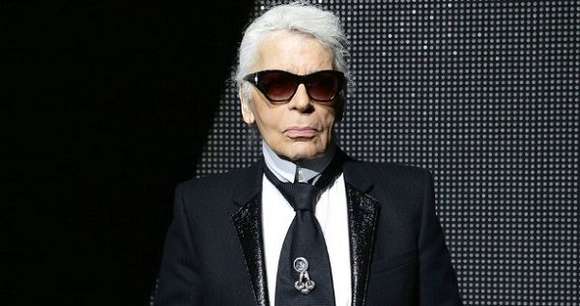Short introduction
Karl Lagerfeld is one of the most famous German fashion designers and is considered a fashion icon of fashion. The trademark is his white ponytail hair, black sunglasses and white shirts with high collars.
Lagerfeld’s name is especially associated with fashion channels, but artistic works and entrepreneurship beyond the French fashion label.
Early life
There is a conflicting statement about the date of birth. As stated in the birth announcement, Lagerfeld was born on June 10, 1933 in Hamburg. However, he circulated different information about the date of birth, according to him he would be a few years younger.
Lagerfeld grew up with his three-year-old sister, Christel and my father’s parties in a rich state. His father, Otto Lagerfeld, has a Condensed Glücksklee milk plant, which makes it a rich Hamburg citizen.
In the city of Hanseatic, the family lives in a villa in Blankeneser Elbhanger, where Yung Karl spent some childhood and his childhood. His father also had a manor in Bad Bramstedt at Schleswig-Holstein, where the family also lived for years. Young Karl attended Realschule Jürgen Fuhlendorf there, but left in 1951 without a title.
As a student, Lagerfeld is interested in Fashion images and is considered talented artistically. His unconventional mother promoted his talent and moved to Paris with his son in 1952, where he graduated from the famous Lycée Montaigne.
Career
His career as a fashion designer began in Paris in 1954 with the competition from the International Woolmark Secretariat, which he won in the Coats category. Another winner of the competition is Yves Saint Laurent, who won prizes for design dresses, and the jury included Christian Dior and Hubert De Givenchy.
This award opens the door to Paris’s fashion scene for Lagerfeld. It was followed by work as a personal assistant for French fashion businessman Pierre Balmain, where he also completed a sewing internship.
In 1957 Lagerfeld moved to Jean Patou’s fashion label as an artistic director. A few years later he went to Italy and began to make a name for himself as a freelance fashion consultant and stylist. During this time he had designed famous labels such as Valentino, Charles Jourdan and Chloé, where he became creative director in 1964.
During this time, Lagerfeld also worked for Fendi, whose groom’s collection was modernized.
Career spotlight.
Lagerfeld achieved international fame when he was appointed as the head of the French fashion company designer Chanel in 1983. He helped label Fesyen, who was very devastated at the time, to become famous again and thus became a famous star in the fashion world.
A year later, the 51-year-old 51-year-old designer also opened his own fashion company with a shop in the Champs-Elysées with his own name. The label initially only had moderate success and Lagerfeld selling rights to the brand in 1987. Now there are several fashion lines for labels, and even though he no longer has them, Lagerfeld himself has repeatedly designed a collection for brands.
After moving to Chanel, Lagerfeld continued to design a collection for other major fashion brands and temporarily continued his work as an artistic director for the Chloé label. In addition to its designs for luxury brands, Lagerfeld also offers its own fashion lane in the segment at a low price, for example for the Quelle letter ordering company and Swedish Fashion Group H & M.
Karl Lagerfeld died on February 19, 2019 on the outskirts of Paris Neuilly-sur-Seine.
Famous quotes
“I hate it’s a cheap word. Cheap people, but clothes are expensive or cheap”.
“Standing on the assembly line is work. What I do is a recreational activity with a professional background”.
“The money must come out of the window so he can return to the door”.
“Briding the cloth doesn’t move anything. It’s a shame out”.
“Only dull heads believe that success is a permanent condition”.
“I advise people not to see so many things on your iPad, because you will lose your imagination! I personally close my eyes and can watch my own film for hours”.
Success tips
Lagerfeld saw the secrets of his own career success in discipline and toughness. As he once revealed in an interview, it was a continuous hard work and iron determination that made it successful.
On the other hand, he found sentimentality and overestimating themselves to be obstacles to success. Also, money has never played a leading role for him. Consciously, he looked at it as a way needed to be able to spend.
The beliefs of artistic work are never satisfied and always trying to improve. In addition, Lagerfeld also repeatedly emphasized how important it does not consider yourself too serious and maintain the attitude of irony.



